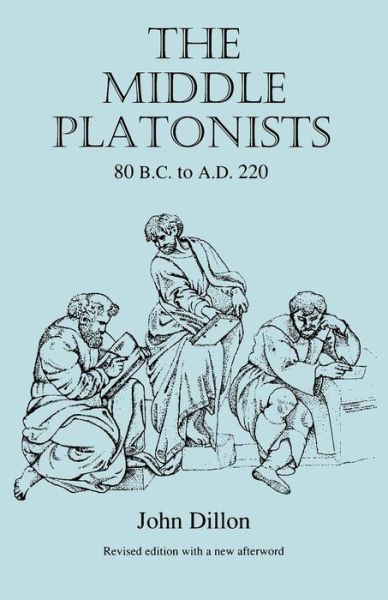The Middle Platonists: 80 B.C. to A.D. 220 ebook
Par zorn lanell le vendredi, mars 4 2016, 21:56 - Lien permanent
The Middle Platonists: 80 B.C. to A.D. 220. John M. Dillon, John Dillon

The.Middle.Platonists.80.B.C.to.A.D.220.pdf
ISBN: 9780801483165 | 430 pages | 11 Mb

The Middle Platonists: 80 B.C. to A.D. 220 John M. Dillon, John Dillon
Publisher: Cornell University Press
Aug 8, 2011 - (Philadelphia: Fortress Press, 1984), 233–82; John M. They professed a highly eclectic religious system chiefly distinguished by its radical dualism and its elaborate cosmogony in which good was co-ordinated with light and evil with darkness. Were closed by the Christian emperor Justinian in the early 6th century A.D. Since the introduction of the first genetically modified food crop – a tomato – in the early 1990s, genetically modified foods have been in the middle of controversy. Aug 9, 2012 - John Dillon, Middle Platonists, 80 B.C. Oh, and BTW, slaughter weight for most pigs is 220 pounds, about 4-6 months of age. To me, this mention of a species barrier sounds like Platonism or a declaration of sacred ground via the naturalistic fallacy. In the sect, there was an esoteric minority called perfecti, who were supposed to obey the strict rules . (Ithaca, NY: Cornell University Press, 1996), 139–83. To A.D.220, pp.138-139, Ithaca: Cornell University Press, 1977. Augustine's The Christian Combat as an example of "the refutation of heretics. Witt, Albinus and the History of Middle Platonism (Cambridge, 1937). Dillon, The Middle Platonists, 80 B.C. Apr 4, 2009 - The first trip, to southern Italy and Syracuse, took place in 388-387 B.C., when Plato made the acquaintance of Archytas of Tarentum, the Pythagorean, and Dion of Syracuse and his infamous brother-in-law, Dionysius I, ruler of that city. At the center of the Academy stood a shrine to the Muses, and at least one modern scholar suggests that the Academy may have been a type of religious brotherhood. May 17, 2009 - It is not difficult to trace this doctrine back through the mystical tradition of Pseudo-Dionysius (c.500 AD.) to the neo-Platonist Plotinus (204-270AD) and beyond to the pre-Socratic Parmenides (c.515-440 BC).